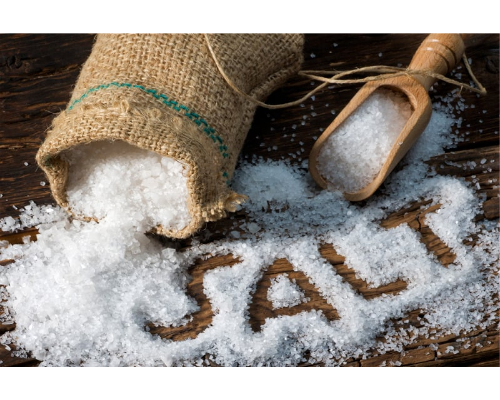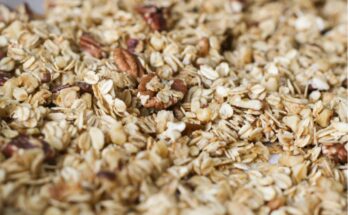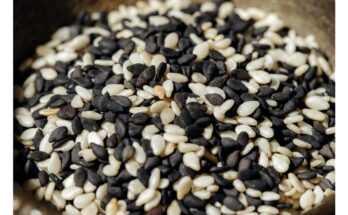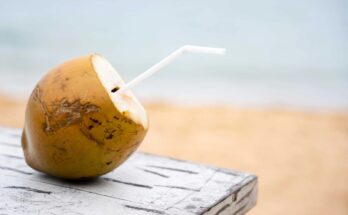1. Sodium is the major electrolyte in the extracellular fluid.
2. Sodium plays an important role in nerve conduction and fluid balance in the body.
3. Maintenance of sodium balance depends on kidney function.
4. High intake of salt (sodium chloride) is associated with high blood pressure and stomach cancer.
5. All foods contain sodium. The sodium requirements can be met with moderate salt intake.
6 Sodium intake needs to be balanced by potassium intake.
Salt is an essential ingredient of diets and enhances its taste and flavour. From time immemorial, it has been used as a preservative. All food substances contain sodium, but added salt (sodium 40%, chloride 60%) is the major source of sodium in our diet. Sodium is primarily involved in the maintenance of water balance and equilibrium. It also plays an important role in electro-physiological functions of the cell. Humans have powerful in-built mechanisms for maintaining blood pressure even on minimal sodium intake.
Sodium is rapidly absorbed from the gastrointestinal tract and a positive balance is achieved on intakes just above minimal requirements. Sodium requirements depend on its losses through urine, faeces and sweat. The sweat loss varies according to climatic conditions. High ambient temperatures and vigorous physical exercise increase sodium loss through sweat. Even after 6 hours of hard physical labour, which may generate 3 litres of sweat, the requirement of sodium chloride may not be more than 8 g/day.
Sources of sodium
Sodium content in natural diets, in general, will be about 300-400 mg a day. Cereals, pulses, vegetables, milk, animal and sea foods are the major sources of sodium. Indian data indicate that daily salt consumption ranges from less than 5 g to 30 g in different States with almost 40% of families consuming about 10 g. Since the taste for salt is an acquired habit, salt consumption should be restricted from an early age.
Preserved foods such as pickles, sun dried foods, and canned foods contribute to higher intakes of salt.
What are the health problems associated with excessive salt/sodium intake?
There is a strong association between salt intake and blood pressure. Prevalence of hypertension is low in populations consuming less than 3 g salt per day. The usual increase in blood pressure with age is also not seen with such intakes. The amount of salt consumed is reflected in urinary sodium. Drastic restriction of dietary salt decreases the risk of hypertension. However, this effect is not uniform as only 20-30% of population are salt sensitive. Potassium-rich foods such as fresh vegetables and fruits decrease blood pressure. In fact, it is the ratio of sodium to potassium in the diet which is important. Salt intakes higher than 10 g have been identified as a risk factor for hypertension.
Besides increasing blood pressure, excessive salt may also affect stomach mucosa and result in atrophic gastritis and gastric cancer.
Higher sodium intake leads to greater calcium excretion which may result in reduction in bone density. Existing evidence reveals a deleterious impact of high salt intake on blood vessels, blood pressure, bones and gastrointestinal tract. Salt intake in our population generally exceeds the requirement. It should not be more than 8 g per day. In India, salt has been identified as a vehicle for food fortification since it is the only commodity which is universally consumed.
1. Restrict the intake of added salt from an early age.
2. Develop a taste for foods/diets low in salt.
3. Restrict intake of preserved and processed foods like papads, pickles, sauces, ketchup, salted biscuits, chips, cheese and fish.
4. Eat plenty of vegetables and fruits to provide adequate potassium.
5. Use always iodized salt.
Eat enough iodine containing foods / use only iodized salt
◆ Iodine is required for formation of thyroid hormones.
◆ Thyroid hormones are necessary for growth and development.
◆ Iodine deficiency leads to goitre (enlargement of thyroid gland)
◆ Lack of fodine in the water and diet is the main cause of iodine deficiency disorders.
◆ Iodine deficiency during pregnancy results in still births, abortions and cretinism.
◆ use of iodized salt ensures adequate iodine intake.
Reference: Dietary guidelines for Indians, NIN, ICMR





Hi there,
Matthew from Fan Studio here. We level up brands with bespoke game dev and gamification strategies, proven to boost engagement. Think interactive brand stories and more. Let’s turn your vision into an engaging reality.
Do take a moment to explore our presentation deck and see what’s possible:
https://fanstudio.co.uk/Fan%20Studio%20Games%20Deck.pdf
Best,
Matthew
hello@fanstudio.co.uk
https://www.fanstudio.co.uk
Thanks for visiting our website.
Regards
Team Food Nest Gen
Greetings
This is Mike James
Let me present you our latest research results from our constant SEO feedbacks that we have from our plans:
https://www.strictlydigital.net/product/semrush-backlinks/
The new Semrush Backlinks, which will make your foodnestgen.com SEO trend have an immediate push.
The method is actually very simple, we are building links from domains that have a high number of keywords ranking for them.
Forget about the SEO metrics or any other factors that so many tools try to teach you that is good. The most valuable link is the one that comes from a website that has a healthy trend and lots of ranking keywords.
We thought about that, so we have built this plan for you
Check in detail here:
https://www.strictlydigital.net/product/semrush-backlinks/
Cheap and effective
Try it anytime soon
Regards
Mike James
mike@strictlydigital.net
Thanks for visiting our website.
Regards
Team Food Nest Gen